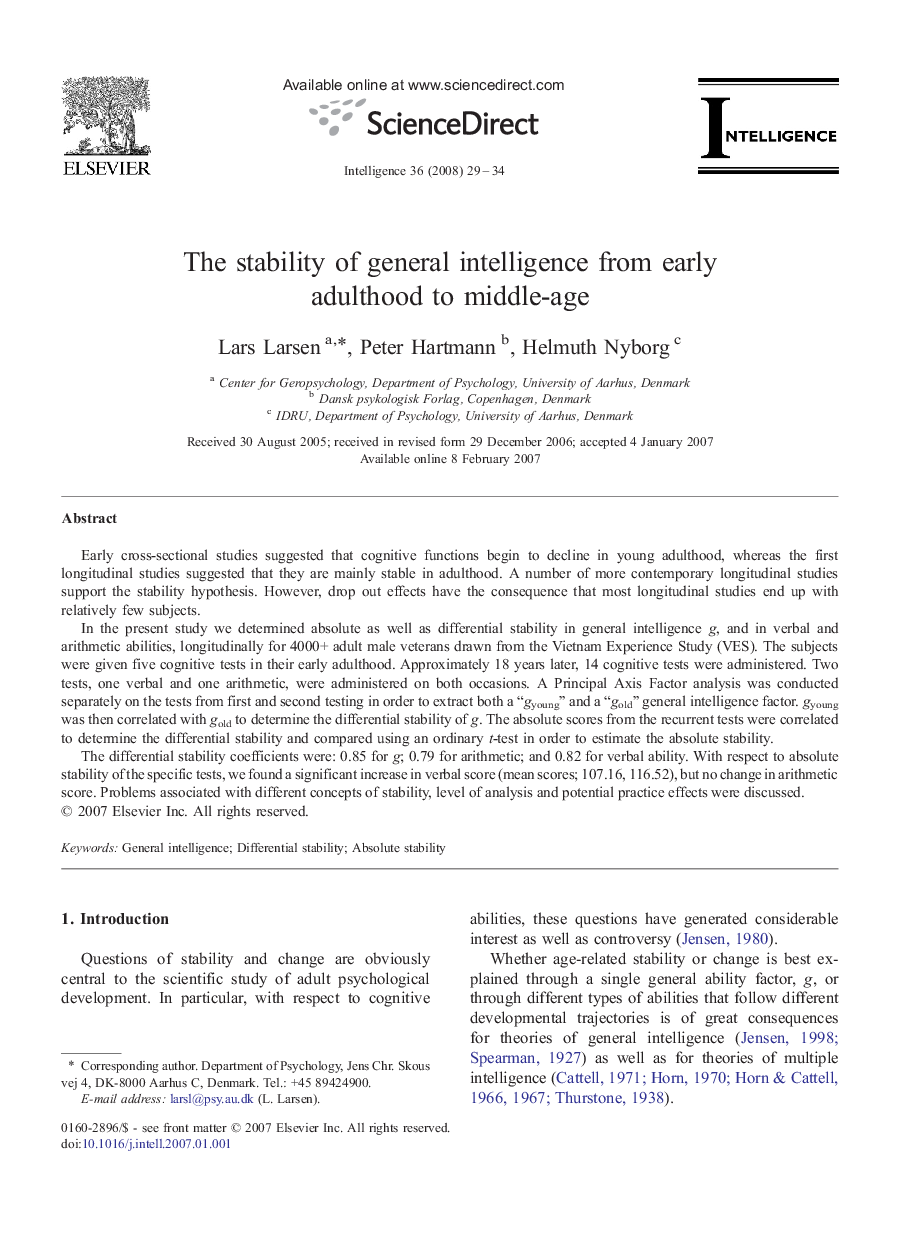| کد مقاله | کد نشریه | سال انتشار | مقاله انگلیسی | نسخه تمام متن |
|---|---|---|---|---|
| 929555 | 922598 | 2008 | 6 صفحه PDF | دانلود رایگان |

Early cross-sectional studies suggested that cognitive functions begin to decline in young adulthood, whereas the first longitudinal studies suggested that they are mainly stable in adulthood. A number of more contemporary longitudinal studies support the stability hypothesis. However, drop out effects have the consequence that most longitudinal studies end up with relatively few subjects.In the present study we determined absolute as well as differential stability in general intelligence g, and in verbal and arithmetic abilities, longitudinally for 4000+ adult male veterans drawn from the Vietnam Experience Study (VES). The subjects were given five cognitive tests in their early adulthood. Approximately 18 years later, 14 cognitive tests were administered. Two tests, one verbal and one arithmetic, were administered on both occasions. A Principal Axis Factor analysis was conducted separately on the tests from first and second testing in order to extract both a “gyoung” and a “gold” general intelligence factor. gyoung was then correlated with gold to determine the differential stability of g. The absolute scores from the recurrent tests were correlated to determine the differential stability and compared using an ordinary t-test in order to estimate the absolute stability.The differential stability coefficients were: 0.85 for g; 0.79 for arithmetic; and 0.82 for verbal ability. With respect to absolute stability of the specific tests, we found a significant increase in verbal score (mean scores; 107.16, 116.52), but no change in arithmetic score. Problems associated with different concepts of stability, level of analysis and potential practice effects were discussed.
Journal: Intelligence - Volume 36, Issue 1, January–February 2008, Pages 29–34